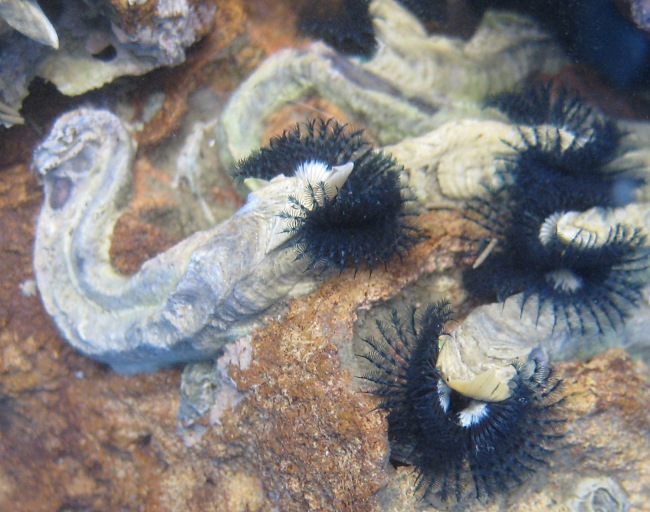
Blue tube worms, which are vulnerable to changing water acidity.
The journal Marine Biology has highlighted an Otago research piece on tube worms as an outstanding paper in its latest issue.
The journal has devoted its editorial to the matters the paper raises regarding ocean acidification and the threat it poses to reefs in temperate waters.
Temperate reefs in a changing ocean: skeletal carbonate mineralogy of serpulids by Marine Science Head of Department Associate Professor Abby Smith with co-authors postgraduate student Marc Andri Riedi and Dr. David J. Winter from the Zoology Department, provides a new method of analysing the relationships between phylogeny and mineral composition in serpulids, or tube worms.
"We are seeing temperate waters of the southern ocean changing rapidly in terms of pH or ocean acidification, putting organisms that make a shell at risk."
“Tube worms grow together in huge lumpy amalgams of tubes. The resulting aggregations or reefs are often quite large and provide a local source of carbonate sediment. The reefs modify the near-shore physical environment and enhance biodiversity by providing shelter, food and substrate.
“Our research into these ecologically significant reefs left us surprised at the skeletal make-up of the worms' shells. We found that taxonomic groups of the worms tend to form their skeletal systems from a specific mineral composition depending on the surrounding ocean chemistry, leaving them particularly vulnerable to the changes ocean acidification may bring in the near future.”
The paper's authors to reviewed all known data, as well as gathering more worms and analysing their skeletal composition. In doing so they applied a new method of statistical analysis (phylogenetically independent contrasts) for serpulids.
This serpulid research is part of a larger, multidisciplinary Mineralogy Project studying the skeletal composition of different temperate marine organisms; that project in turn lies within the NZ Ocean Acidification research theme of which Associate Professor Smith is the Director.
“When you're a shell, what you are made of strongly influences how you respond to sea water chemistry,” she says. “We are seeing temperate waters of the southern ocean changing rapidly in terms of pH or ocean acidification, putting organisms that make a shell at risk.
“Not all shells are created equal. Some are more vulnerable than others to ocean acidification, so we're making an inventory of vulnerably to dissolution.
“The Mineralogy Project has already published data on bryozoans, cephalopods, and coralline algae, with papers on sponges, urchins and barnacles on the way.”
